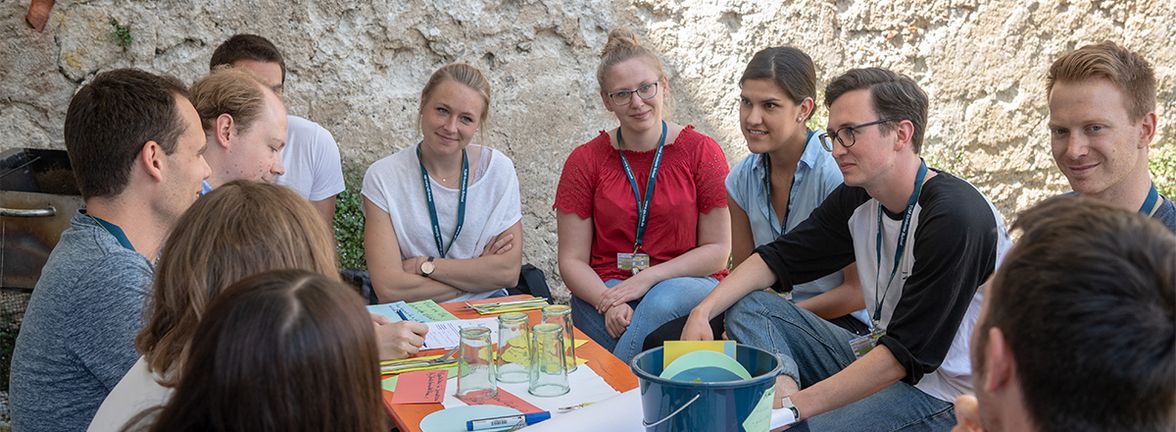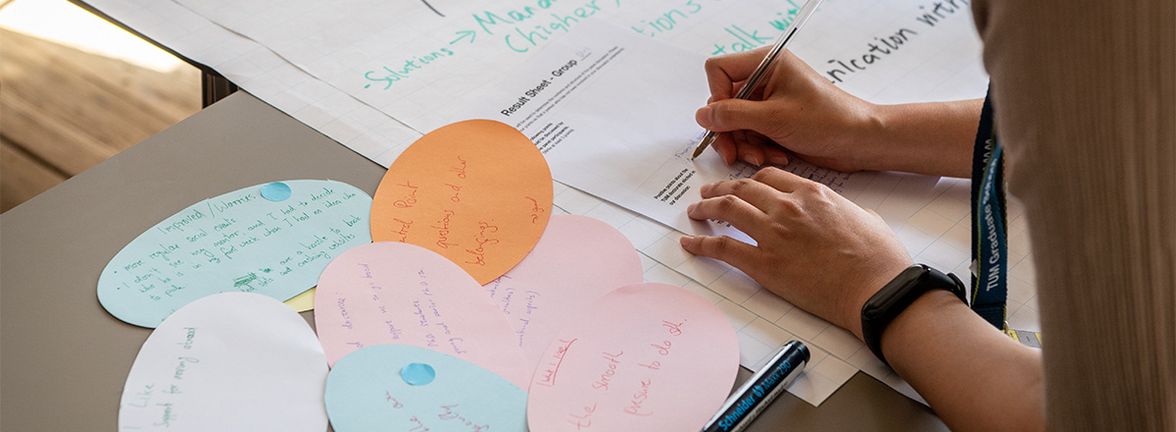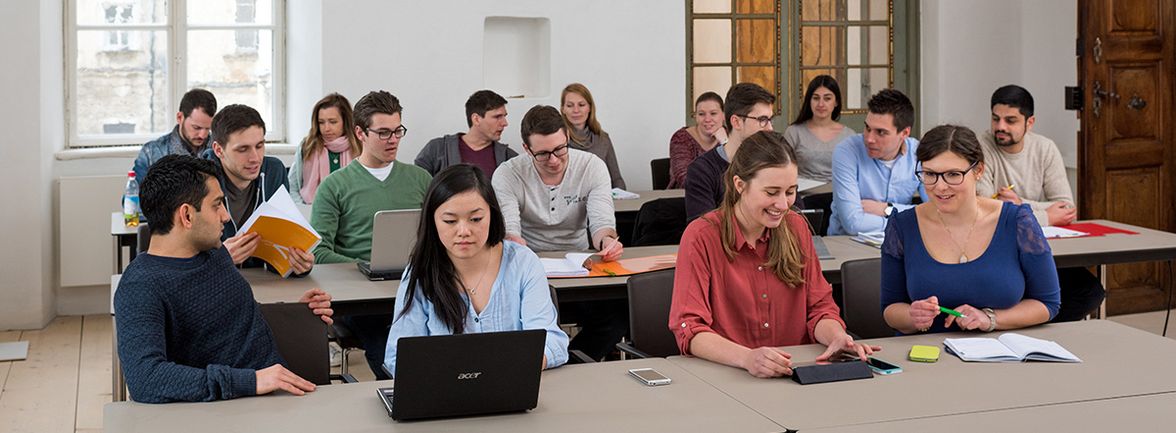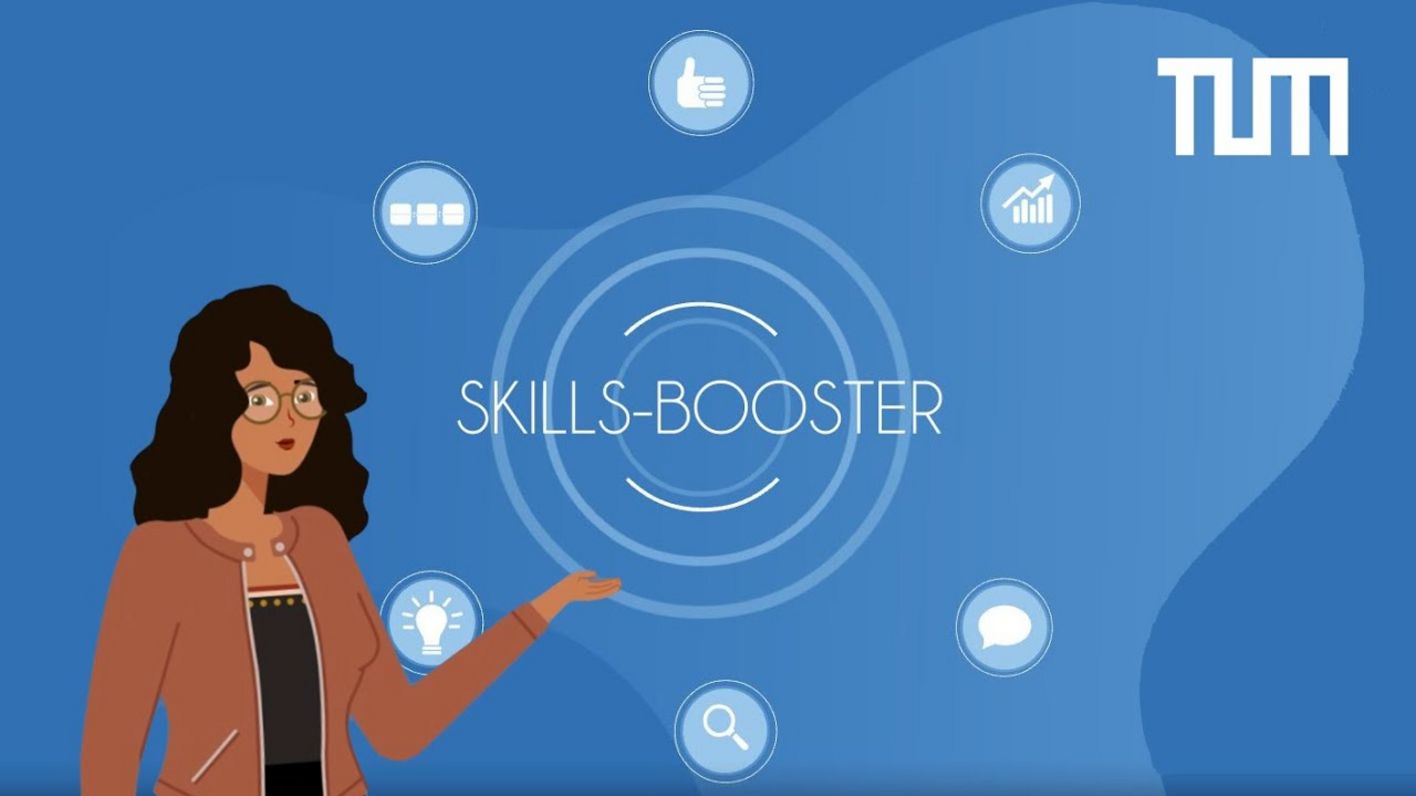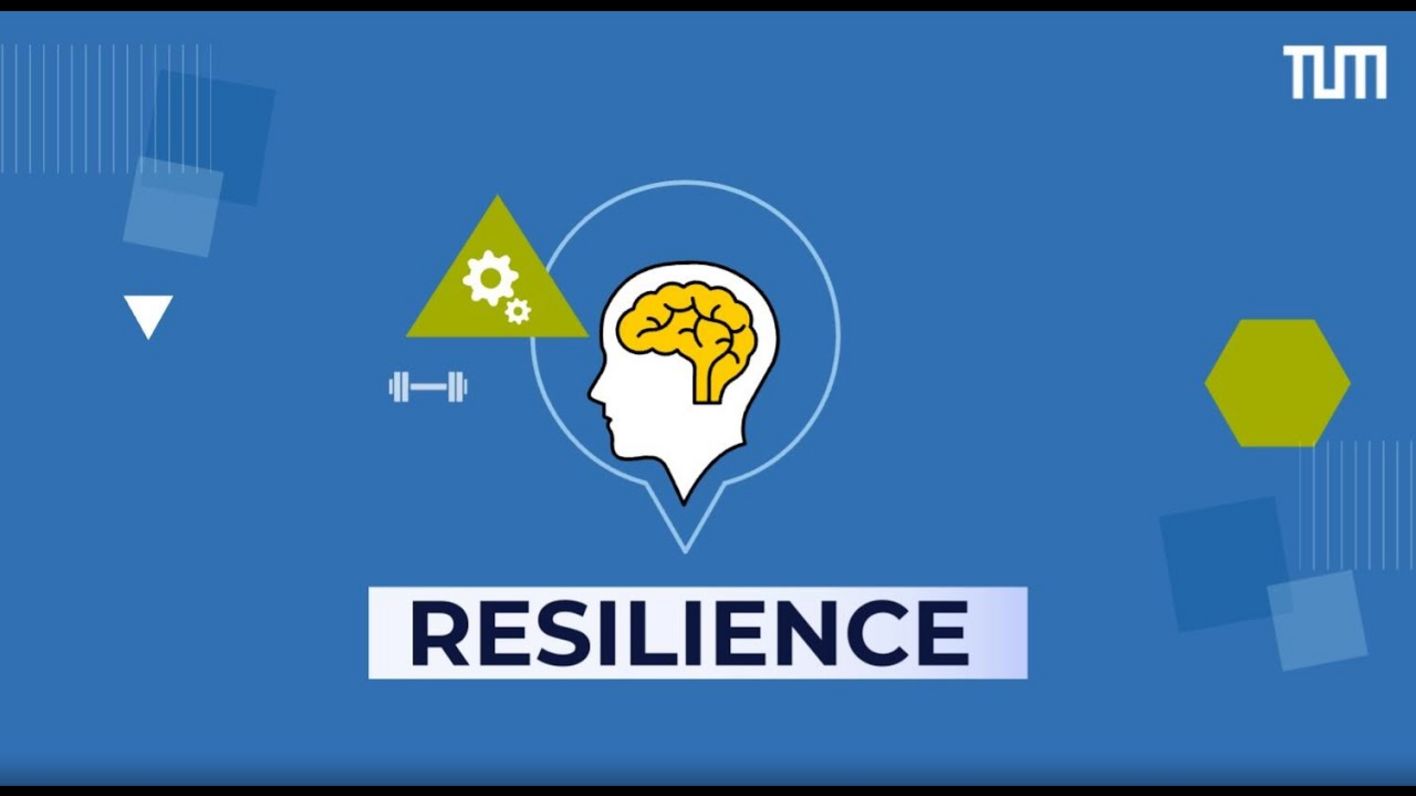Inside the course program
Your goals are our motivation: Whether you want to improve your project management skills, enhance your rhetorical abilities or gain expertise in submitting scientific funding applications - the TUM Graduate School (TUM-GS) supports your transferable skills development with a comprehensive program of workshops and courses.
This is because a doctorate involves much more than the scientific work on the dissertation itself: Presenting at international conferences, managing research projects or navigating complex team structures and different communication styles, to name just a few examples. Various challenges await first stage researchers, to which a broad transferable skills profile provides an answer. Especially in today's dynamic working world, these transferable skills, which you can apply in diverse fields, are becoming increasingly important.
How we enhance your skills
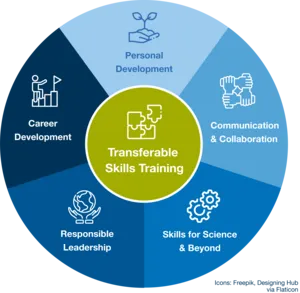
TUM Graduate School (TUM-GS) offers a wide range of courses in five different areas to expand and sharpen your competency profile. The courses are designed as complementary qualification during your doctorate at the Technical University of Munich (TUM) and offer valuable orientation for your next career steps.
The five areas of the Transferable Skills Training cover a wide range of topics, from personal development to planning future career paths. The course program also takes into account the diverse and varied life journeys of doctoral candidates, who also pursue different career paths after their doctorate. The transferable skills acquired during and after the doctorate will therefore be relevant in different ways. The aim of the qualification program is thus to provide as holistic a transferable skills profile as possible, designed according to international standards and quality criteria.
To the course program
Facts & Figures
The key figures of our Transferable Skills Training program:
70+ courses per semester
75+ trainers
43% courses in English
45% online courses
>1.000 participants each year
95% of all participants recommend our courses
🎬 Skills Booster
In each episode of our “Skills Booster” video series, we use the expertise of our trainers to focus on a key transferable skill for doctoral candidates. Get valuable tips and learn how you can develop your skills beyond your academic specialization.
In the first episode of "Skills Booster, we cover the topic of “scientific writing”, a fundamental skill for academic work. Jeremiah Hendren, communication consultant and trainer at TUM-GS, shares his experience and explains what good scientific writing is: “Good writing is not about making it fancy, making it stylish. It is actually about the science itself. It is about bringing the science to life.”
In the second episode of "Skills Booster, we delve into the topic of resilience. Judith Bergner, a qualified psychologist who specializes in Mental Health and trainer at TUM-GS, shares her insights on the challenges doctoral candidates often face during the doctorate and how to cope with these while being resilient. For Judith, resilience “starts with the body - being present in the body and noticing your needs."
Sustainable Mindset: Tackling Complexity in a Dynamic World
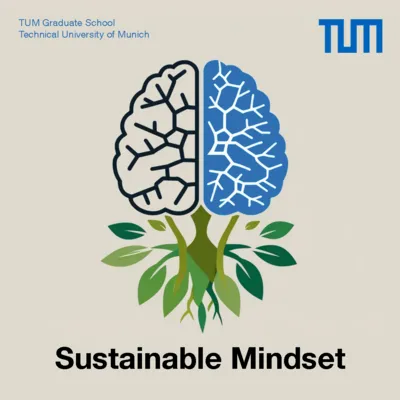
Academic year 2024/2025
The term sustainability is often only used with regard to ecological issues. However, this results in a narrowing of the term, which ignores the fact that sustainable thinking and action must also be seen in a broader context. In dealing with a present and future characterised by the climate crisis among other things, such thinking, which is summarised in the title as a ‘sustainable mindset’, becomes indispensable. This refers to a set of skills that make it easier to navigate a complex working and living environment characterized by uncertainty and ambivalence. If the challenges of the coming decades are to be met sustainably, critical thinking is required that is not focussed on superficial, short-term solutions.
The Transferable Skills Training of the TUM Graduate School reflects this attitude through a holistically designed program that is intended to be useful for years to come within and beyond the university context. A doctorate creates new knowledge in specific research contexts, but the time of the doctorate is also an opportunity to acquire competences that are of importance beyond science, both personally and for society as a whole.
Handling risks and changes
Take a term such as ‘anticipatory competency’, which is used in the Education for Sustainable Development framework established by UNESCO. This refers to the ability to imagine one's own future, but also to evaluate various possible outcomes and results. Closely linked to this is the ability to weigh the consequences of decisions and to deal with risks and changes.
A doctorate is also a bet on the future: who knows whether the experiment will succeed or a hypothesis will be confirmed? In this process, you learn flexibility and how to deal with the unknown. Although these conditions can also be part of the frustration and difficulty of the doctoral process, this year's focus on ‘sustainable mindset’ aims to emphasize that dealing with these circumstances can also be a tremendous asset that can be just as helpful in personal development as in the search for a fulfilling career.
Targeted support
Many of our courses specifically support you in recognizing and developing your sustainable mindset: For example, use our course “Mein Kompetenzprofil” to find out how you can name your skills and, above all, use them to achieve an individually meaningful career goal. Alternatively, take the ‘Coaching Skills for Academic Leaders’ course to build up a targeted toolbox from which you can benefit in the long term by learning how to communicate in a coaching manner in a variety of situations - with students, colleagues or superiors. Find out more about our program by browsing our five different categories.
